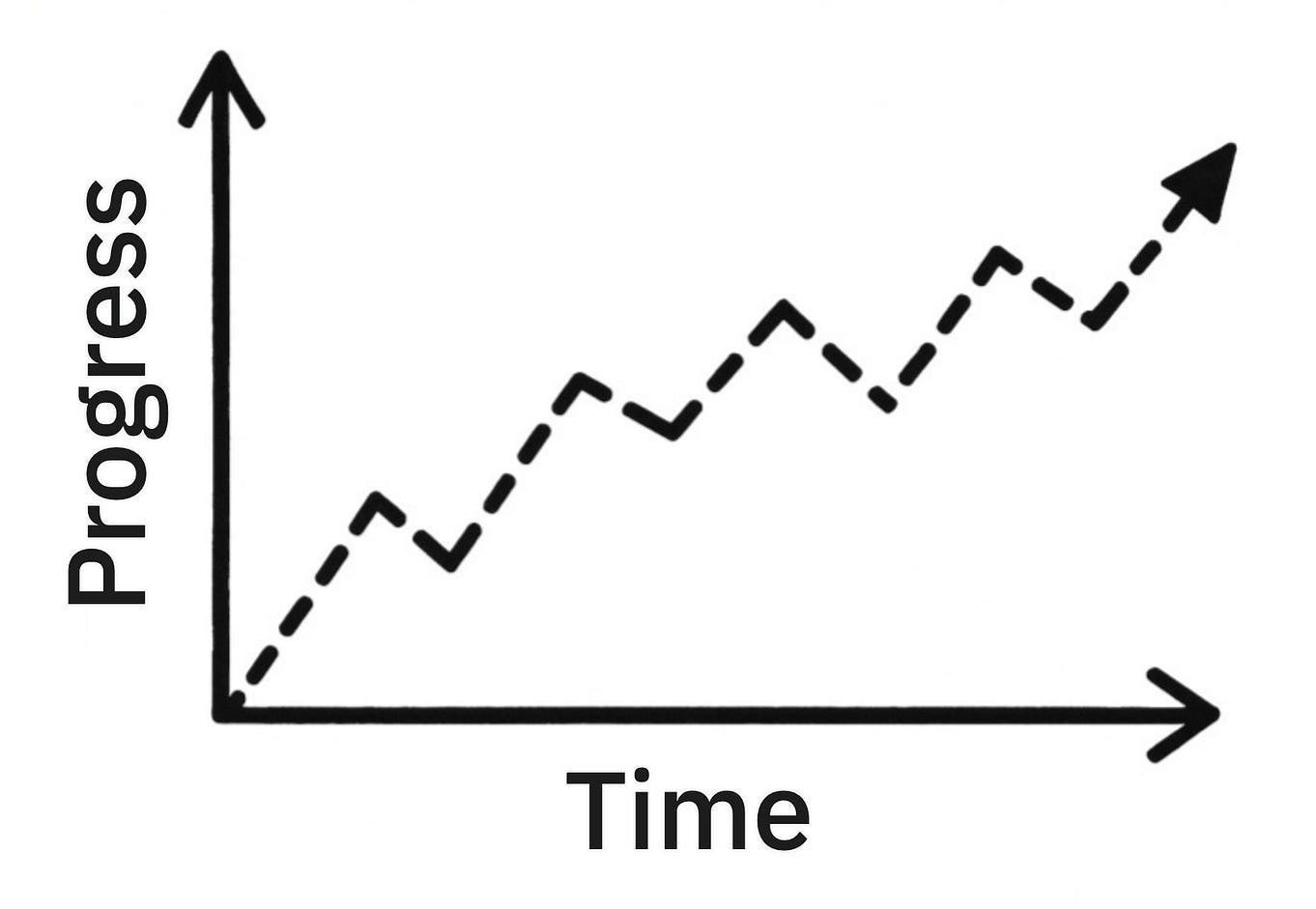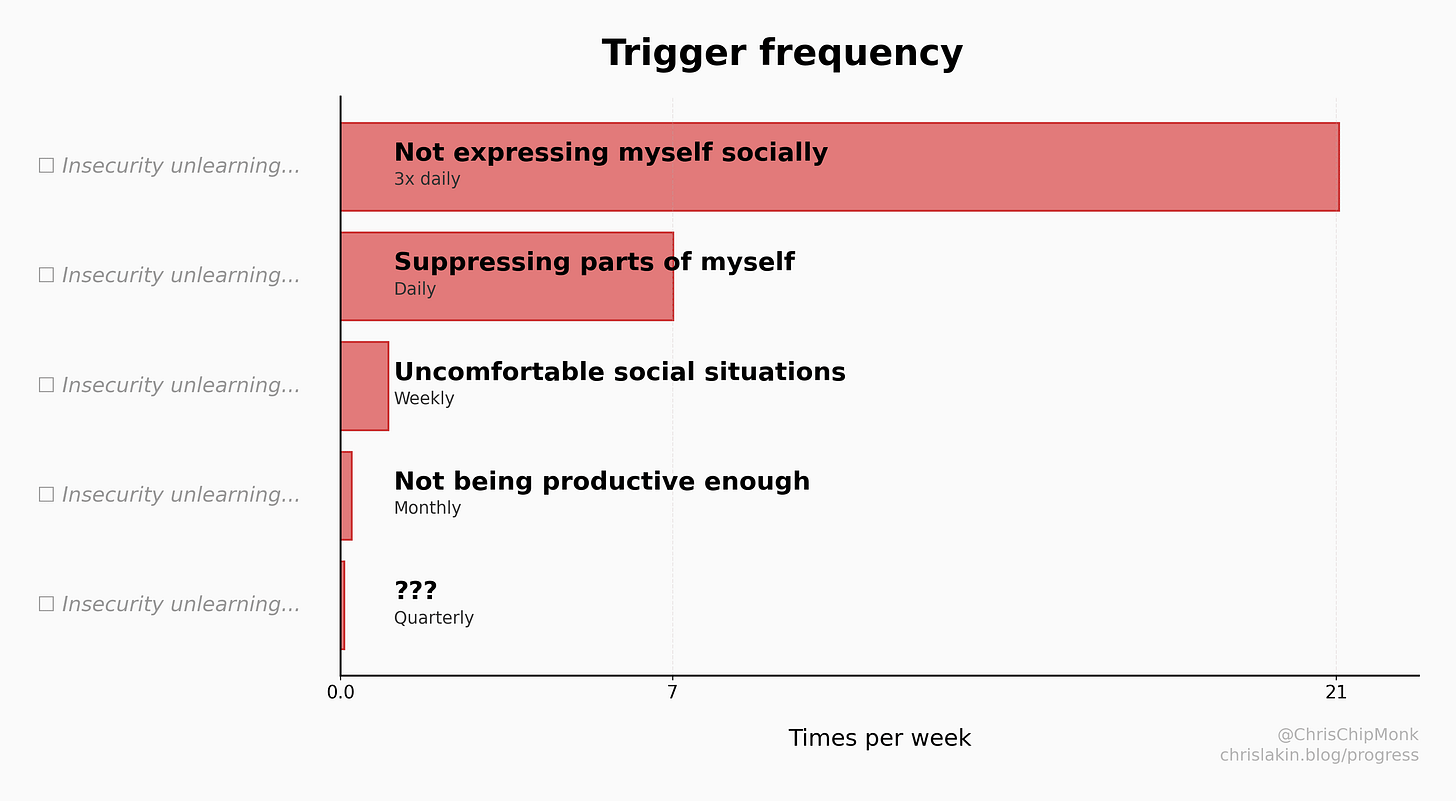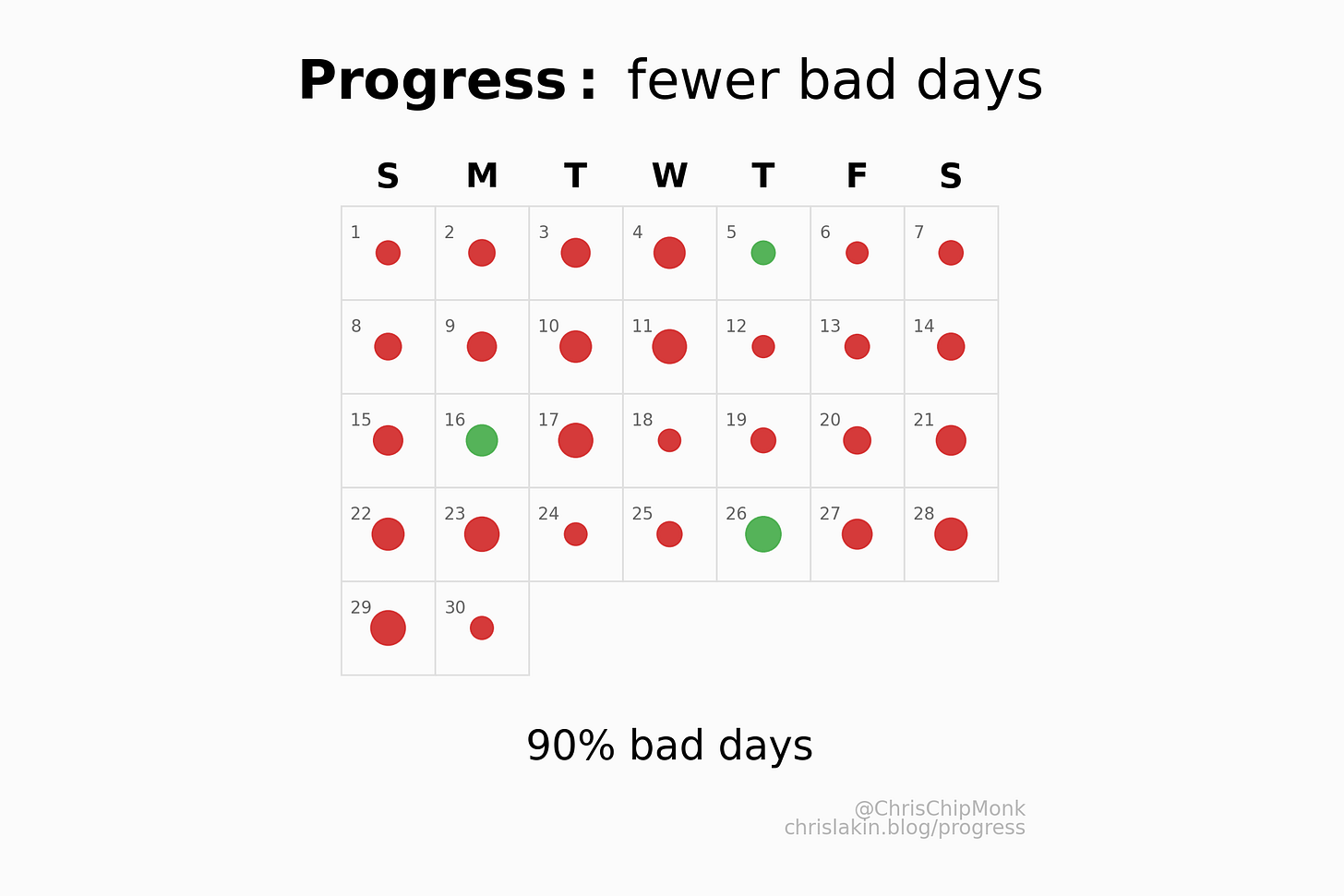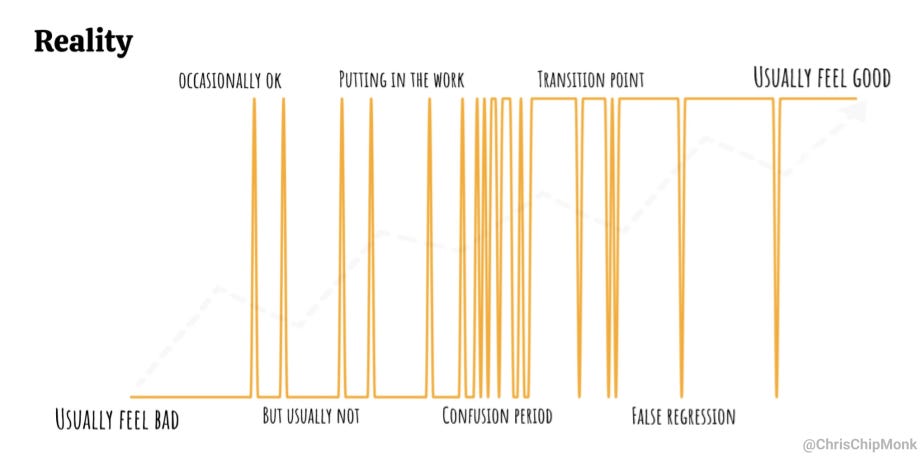Progress isn't gradual
I used to believe that progress with feeling more secure was roughly gradual:
It was very frustrating.
I had terrible neck pain for years. Eventually, one day, I had an security breakthrough and experienced sudden relief. This relief continued for a few months, so I began to think my neck pain was a thing of the past.
This is not what happened.
Soon I began to notice moments where my neck was in great pain.
So I got worried: Relapse!? Was all of my progress a lie??
To better understand what was going on, I started tracking every moment my neck felt tense. I knew that my neck used to trigger in situations where I felt I wasn’t fully expressing myself socially and a few others — was this still the case?
I discovered my neck wasn’t triggering in these old situations. It was mostly fine then. Instead, it was triggering in other situations I’d never noticed were triggers—for example, when I felt like I wasn’t “being productive enough”.
I’d never noticed this was a trigger—but, well, I also don’t worry about my productivity all that often.
Finally it clicked: My neck pain didn’t have a single cause—it was a common symptom of multiple insecurities. Some of these insecurities related to social interaction, others related to productivity, and yet others remained to be named.
So even though I had unlearned some of the social insecurities that triggered my neck pain, other insecurities remained.
I also noticed that my insecurities appeared to follow a power law: a few were quite common, and the rest formed a long tail of less common, “dormant insecurities”.
What was surprising was that any insecurity could trigger debilitating neck pain. I’d expected progress to look like my neck pain gradually disappearing, but instead, progress looked like debilitating suffering, but less and less often. So the metric to track wasn’t “How good do I feel today?”, but “How frequent are my bad days?”
Now that I have a better model of progress, new moments of neck pain are exciting: I’ll be able to feel even more secure soon.
About | Twitter
V3. 2025 May 5 – 2025 Nov 8.







Good one! Another framing I like is that progress is mostly about speed of recovery, which cashes out similarly to your framing, but tracks a slightly different element.
I really like the graphics 👌